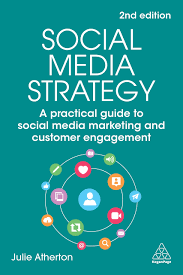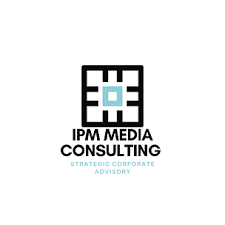Elevating Your Brand: The Impact of Expert Public Relations Consulting Services
The Power of Public Relations Consulting Services
Public relations consulting services play a crucial role in helping businesses effectively manage their reputation, build brand awareness, and navigate the complexities of the modern communication landscape. In today’s fast-paced and interconnected world, having a strategic approach to public relations is essential for success.
Public relations consulting services offer a range of benefits to businesses looking to enhance their communication efforts. From crafting compelling messaging to developing targeted media strategies, PR consultants bring expertise and experience to the table.
One key advantage of working with public relations consultants is their ability to provide an external perspective. By leveraging their industry knowledge and insights, PR consultants can offer fresh ideas and innovative approaches that help businesses stand out in a crowded marketplace.
Effective public relations consulting services also help businesses build strong relationships with key stakeholders, including customers, investors, and the media. By creating engaging content, managing crisis communication effectively, and leveraging social media platforms, PR consultants can help businesses connect with their target audience and enhance brand loyalty.
Furthermore, public relations consulting services are invaluable in times of crisis. Whether facing negative publicity or dealing with a challenging situation, PR consultants are skilled at managing reputational risks and mitigating damage through strategic communication tactics.
In conclusion, public relations consulting services are essential for businesses looking to establish a strong brand presence, engage effectively with their audience, and navigate the ever-changing media landscape. By partnering with experienced PR consultants, businesses can unlock the power of strategic communication and achieve their goals in today’s competitive business environment.
Enhancing Brand Success: 8 Key Advantages of Public Relations Consulting Services
- Expertise in crafting compelling messaging
- Access to industry insights and trends
- Ability to provide an external perspective
- Help in building strong relationships with stakeholders
- Skilled crisis communication management
- Enhanced brand awareness and reputation
- Tailored media strategies for targeted outreach
- Invaluable support during times of crisis
Challenges and Considerations of Public Relations Consulting Services: A Critical Overview
- Costly for small businesses with limited budgets
- Potential conflicts of interest when representing multiple clients in the same industry
- Results may not be immediate and require long-term investment
- Difficulty in measuring the direct impact of PR activities on business outcomes
- Risk of miscommunication or misinterpretation of messaging by the public
- Reliance on external consultants may hinder internal team development and expertise
- Challenges in maintaining consistent messaging across all communication channels
Expertise in crafting compelling messaging
Public relations consulting services offer a valuable pro in their expertise in crafting compelling messaging. PR consultants possess the skills and experience to develop impactful and persuasive communication that resonates with target audiences. By understanding the nuances of language, tone, and storytelling, PR consultants can create messaging that effectively conveys a brand’s values, key messages, and unique selling points. This ability to craft compelling messaging helps businesses capture attention, evoke emotions, and ultimately drive engagement and loyalty among their stakeholders.
Access to industry insights and trends
Public relations consulting services offer businesses valuable access to industry insights and trends, providing a competitive edge in the market. PR consultants bring a wealth of knowledge and expertise that allows businesses to stay informed about the latest developments in their industry. By leveraging this information, businesses can make informed decisions, anticipate changes, and adapt their communication strategies to stay ahead of the curve. Access to industry insights and trends through PR consulting services enables businesses to position themselves as thought leaders and innovators, enhancing their brand reputation and credibility among stakeholders.
Ability to provide an external perspective
An inherent advantage of public relations consulting services is the ability to offer an external perspective. By tapping into the expertise and insights of PR consultants, businesses gain access to fresh ideas and innovative approaches that can help them differentiate themselves in a competitive market. This external viewpoint allows for a more objective assessment of communication strategies, enabling businesses to identify new opportunities, address potential challenges, and ultimately enhance their overall brand positioning and reputation.
Help in building strong relationships with stakeholders
Public relations consulting services offer a valuable benefit by helping businesses build strong relationships with stakeholders. By creating targeted communication strategies and engaging content, PR consultants facilitate meaningful interactions with customers, investors, the media, and other key stakeholders. This proactive approach not only fosters trust and loyalty but also enhances brand reputation and credibility. Building and nurturing these relationships through strategic PR initiatives ultimately contribute to long-term success and sustainable growth for businesses in today’s competitive market.
Skilled crisis communication management
Skilled crisis communication management is a vital pro of public relations consulting services. In times of crisis, having a team of experienced PR consultants can make all the difference in effectively navigating challenging situations and safeguarding a company’s reputation. PR consultants are adept at crafting timely and strategic responses, managing media inquiries, and mitigating potential damage to a brand’s image. Their expertise in crisis communication allows businesses to address issues swiftly, maintain transparency with stakeholders, and emerge from crises with minimal impact on their reputation.
Enhanced brand awareness and reputation
Public relations consulting services offer businesses the invaluable benefit of enhancing brand awareness and reputation. By crafting strategic communication plans and engaging with target audiences through various channels, PR consultants help businesses establish a strong brand presence in the market. Through consistent messaging, storytelling, and relationship-building efforts, PR consultants can elevate a company’s reputation, increase visibility, and foster positive perceptions among stakeholders. This proactive approach to managing brand awareness and reputation not only strengthens customer loyalty but also differentiates the business from competitors in a crowded marketplace.
Tailored media strategies for targeted outreach
Tailored media strategies for targeted outreach are a key advantage of public relations consulting services. By customizing communication plans to reach specific audiences through the most relevant channels, PR consultants can maximise the impact of a company’s message. This approach ensures that businesses connect with the right people at the right time, increasing brand visibility and engagement. Through strategic media planning and execution, public relations consultants help businesses effectively convey their story and key messages to enhance brand reputation and achieve their communication goals.
Invaluable support during times of crisis
Public relations consulting services offer invaluable support during times of crisis by providing businesses with expert guidance and strategic communication tactics to effectively manage reputational risks and navigate challenging situations. PR consultants are skilled at developing crisis communication plans, crafting key messages, and engaging with stakeholders to mitigate damage and maintain trust. Their swift and proactive response can help businesses safeguard their reputation, address concerns transparently, and emerge stronger from crises. In times of uncertainty and adversity, the support of PR consultants can make a significant difference in protecting a company’s brand image and maintaining credibility with its audience.
Costly for small businesses with limited budgets
For small businesses with limited budgets, one significant drawback of public relations consulting services is the cost involved. Hiring PR consultants can be expensive, especially for businesses operating on a tight financial margin. The fees charged by PR agencies may exceed the budget constraints of small businesses, making it challenging for them to access professional PR expertise. This financial barrier can prevent small businesses from leveraging the benefits of strategic communication and brand building that PR consulting services offer, putting them at a disadvantage compared to larger competitors with more resources to invest in their public relations efforts.
Potential conflicts of interest when representing multiple clients in the same industry
One significant con of public relations consulting services is the potential for conflicts of interest when representing multiple clients within the same industry. In such scenarios, PR consultants may face challenges in maintaining impartiality and ensuring that the interests of each client are prioritised without compromising confidentiality or strategic advantage. This situation can lead to ethical dilemmas and concerns about fair representation, potentially impacting the credibility and trustworthiness of the PR consultancy. Managing conflicting interests while delivering effective communication strategies can pose a complex dilemma for PR consultants operating in competitive industries.
Results may not be immediate and require long-term investment
One significant drawback of public relations consulting services is that results may not be immediate and often demand a long-term investment. Unlike some marketing strategies that can yield quick, tangible outcomes, the impact of PR efforts may take time to manifest. Building brand reputation, fostering relationships with stakeholders, and shaping public perception are gradual processes that require consistent effort and patience. Businesses must understand that the benefits of PR consulting services may not be instantaneous but rather accrue over time through sustained commitment and strategic communication efforts.
Difficulty in measuring the direct impact of PR activities on business outcomes
One significant challenge of public relations consulting services is the difficulty in measuring the direct impact of PR activities on business outcomes. Unlike some marketing efforts that can be more easily quantified in terms of ROI, the effects of PR initiatives on key business metrics such as sales or revenue may be indirect and harder to attribute directly. This lack of clear measurement can make it challenging for businesses to assess the true effectiveness of their PR strategies and justify the investment in PR consulting services. Despite this con, leveraging qualitative data, brand sentiment analysis, and other metrics can help provide a more holistic view of the impact of PR activities over time.
Risk of miscommunication or misinterpretation of messaging by the public
One notable con of public relations consulting services is the risk of miscommunication or misinterpretation of messaging by the public. Despite careful planning and strategic communication efforts, there is always a possibility that the intended message may be misunderstood or misconstrued by the target audience. This can lead to confusion, backlash, or damage to the brand’s reputation if not addressed promptly and effectively. Managing this risk requires constant vigilance, clear and transparent communication, and proactive measures to ensure that messaging aligns with the intended goals and values of the business.
Reliance on external consultants may hinder internal team development and expertise
One significant drawback of relying heavily on public relations consulting services is the potential hindrance it poses to the development of internal teams and expertise within a business. By outsourcing PR functions to external consultants, there is a risk that internal team members may not have the opportunity to build their skills and knowledge in strategic communication. This overreliance on external expertise can limit the growth and development of in-house talent, potentially leading to a lack of ownership and understanding of the company’s communication needs and goals among internal team members. As a result, businesses may struggle to effectively integrate PR strategies into their overall operations and long-term planning, ultimately impacting their ability to adapt and respond swiftly to changing communication challenges.
Challenges in maintaining consistent messaging across all communication channels
One significant challenge in public relations consulting services is the difficulty of maintaining consistent messaging across all communication channels. With the proliferation of digital platforms and the diverse ways in which audiences consume information, ensuring a unified message can be a complex task. Discrepancies in messaging across channels can lead to confusion among stakeholders and dilute the overall impact of communication efforts. PR consultants must navigate this challenge by developing robust strategies, closely monitoring all channels, and implementing cohesive messaging frameworks to ensure consistency and coherence in brand communication.




